Omeprazole
"Order omeprazole 10 mg on-line, gastritis gurgling."
By: Neal H Cohen, MD, MS, MPH
- Professor, Department of Anesthesia and Perioperative Care, University of California, San Francisco, School of Medicine, San Francisco, California

https://profiles.ucsf.edu/neal.cohen
What do you think would happen if she directly addressed the teachers and complained about discrimination? Chances are gastritis diet oatmeal purchase 10mg omeprazole with mastercard, she would be dismissed as undermining the authority of the school gastritis severe pain cheap omeprazole 40mg, just as the Masons gastritis vomiting blood discount omeprazole 40 mg line, and might be thought to gastritis diet ������� purchase omeprazole 10mg mastercard lack credibility because of her poverty and drug addiction. The authors of this study suggest that teachers closely examine their biases against parents. Schools may also need to examine their ability to dialogue with parents about school policies in more open ways. What happens when parents have concerns over school policy or view student problems as arising from flaws in the educational system? Certainly, any efforts to improve effective parental involvement should address these concerns. To what extent would the institution dictate the activities of the day and how much of the day would you spend on those activities? Students move between various states as they negotiate the demands of the school system and their own personal interests. The majority of the day (298 minutes) takes place in the student state this state is one in which the student focuses on a task state. Long pauses before getting out the next book or finding materials sometimes indicate that frustration. The street corner state is one in which the child is playful, energetic, excited, and expresses personal opinions, feelings, and beliefs. In fact, teachers sometimes reward students with opportunities to move freely or to talk or to be themselves. But when students initiate the street corner state on their own, they risk losing recess time, getting extra homework, or being ridiculed in front of their peers. Or it can be difficult if the parent is there to discuss trouble at school with a staff member. The sanctity state is a time in which the child is contemplative, quiet, or prayerful and is a very brief part of the day. Since students seem to have so much enthusiasm and energy in street corner states, what would happen if the student and street corner states could be combined? Many educators feel concern about the level of stress children experience in school. And some can be a result of the emphasis on testing and grades, as reflected in a Newsweek article entitled "The New First Grade: Are Kids Getting Pushed Too Fast Too Soon? This article reports concerns of a principal who worries that students begin to burn out as early as 3rd grade. In the book, the Homework Myth: Why Our Kids Get Too Much of a Bad Thing, Kohn (2006) argues that neither research nor experience support claims that homework reinforces learning and builds responsibility. Cultural Influences Another way to examine the world of school is to look at the cultural values, concepts, behaviors and roles that are part of the school experience but are not part of the formal curriculum. These are part of the hidden curriculum but are nevertheless very powerful messages. The hidden curriculum includes ideas of patriotism, gender roles, the ranking of occupations and classes, competition, and other values. Teachers, counselors, and other students specify and make known what is considered appropriate for girls and boys. The gender curriculum continues into high school, college, and professional school. Students in gifted programs or those moving toward college preparation classes may be viewed as superior to those who are receiving tutoring. Kindergarten is an "academic boot camp" in which students are prepared for their future student role-that of complying with an adult imposed structure and routine designed to produce docile, obedient, children who do not question meaningless tasks that will become so much of their future lives as students. A typical day is filled with structure, ritual, and routine that allows for little creativity or direct, hands-on contact.
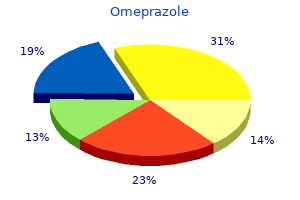
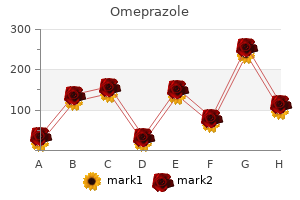
Foodallergyandintolerancearedifferentfromfood aversion gastritis diet treatment generic omeprazole 20mg visa, where the person refuses the food for psy chologicalorbehaviouralreasons gastritis diet 7 up coupon order omeprazole 40mg visa. Food allergy and food intolerance A food allergy occurs when a pathological immune responseismountedagainstaspecificfoodprotein gastritis diet 4 believers buy 20mg omeprazole overnight delivery. InIgEmediatedfoodallergythereisahistoryofallergic symptoms varying from urticaria to gastritis of the antrum omeprazole 20 mg for sale facial swelling to anaphylaxis (Fig. NonIgEmediated food allergy usually presents with diarrhoea, vomiting, abdominal pain and some times failure to thrive. If indicated, endoscopy and intestinal biopsy may be obtained; the diagnosis is supported by the presenceofeosinophilicinfiltrates. The test should be performed in hospital with full resuscitation facilities available, and close monitoring forsignsofanallergicreaction. Both tests may yield falsepositive results, but the greater Management the management of a foodallergic child involves avoidance of the relevant foods. This can be very 274 difficultastherelevantfood(s)maybepresentinsmall quantities in many foods and food labels are often unclear. Food labelling in the European Union legally requires common food allergens to be clearly dis closed. The advice of a pae diatricdietitianisessentialtoaidpatientsavoidfoods to which they are allergic and avoid nutritional deficiencies. Drug man agementformildreactions(nocardiorespiratorysymp toms) is with antihistamines. If the child has a severe reaction, treatment is with epinephrine (adrenaline) given intramuscularly by autoinjector. Itisassociatedwith eczema, sinusitis and adenoidal hypertrophy and is closely associated with asthma. Atopic eczema is classified as an allergic disease as many affected children will have a family history of allergy,atleast50%developotherallergicdiseasesand IgEantibodiestocommonallergensarepresent. There is a close relationship between eczema and food allergy, particularly in young infants with severe disease; up to 40% of them have an IgEmediated foodallergy,inparticulareggallergy. Affected children often have IgE antibodies to aeroallergens (housedustmite;tree,grassandweedpollens;moulds; animal danders). Itmayalsoinvolvedeepertissuestoproduce swelling of the lips and soft tissues around the eyes (angioedema),andevenanaphylaxis. These changesaredependentonactivationofskinmastcells, which contain a range of mediators including hista mine. Allergic rhinitis and conjunctivitis (rhinoconjunctivitis) this can be atopic (associated with IgE antibodies to common inhalant allergens) or nonatopic. Thosewhohadasevere reaction should carry an epinephrine (adrenaline) autoinjector,andallergenimmunotherapyshouldbe considered. This is usually because viral illnesses, for which children are often prescribed antibiotics, themselves cause skin rashes. Allergyskinandbloodtestscanbeusedtosupport a diagnosis of drug allergy, but a drug challenge maybetheonlywaytoconclusivelyconfirmorrefute the diagnosis. This is contraindicated after a severe allergic reaction and an alternative drug should be sought. Anaphylaxis this serious and potentially lifethreatening allergic reaction is described in Chapter 6 on Paediatric emergencies. Websites (Accessed April 2011) Food Allergy and Anaphylaxis Network: Available at.
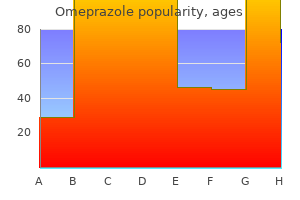
Most patients have reported improved psychosocial outcomes gastritis diet ��� generic 10 mg omeprazole amex, ranging between 87% for MtF patients and 97% for FtM patients (Green & Fleming gastritis diet ������������ generic 20mg omeprazole with amex, 1990) gastritis rice omeprazole 10 mg overnight delivery. Weaknesses of these earlier studies are their retrospective design and use of different criteria to gastritis diet ������ buy omeprazole 40mg mastercard evaluate outcomes. A prospective study conducted in the Netherlands evaluated 325 consecutive adult and adolescent subjects seeking sex reassignment (Smith, Van Goozen, Kuiper, & Cohen-Kettenis, 2005). Patients who underwent sex reassignment therapy (both hormonal and surgical intervention) showed improvements in their mean gender dysphoria scores, measured by the Utrecht Gender Dysphoria Scale. Scores for body dissatisfaction and psychological function also improved in most categories. This is the largest prospective study to affirm the results from retrospective studies that a combination of hormone therapy and surgery improves gender dysphoria and other areas of psychosocial functioning. There is a need for further research on the effects of hormone therapy without surgery, and without the goal of maximum physical feminization or masculinization. In current practice there is a range of identity, role, and physical adaptations that could use additional follow-up or outcome research (Institute of Medicine, 2011). Invited papers were submitted by the following authors: Aaron Devor, Walter Bockting, George Brown, Michael Brownstein, Peggy Cohen-Kettenis, Griet DeCuypere, Petra DeSutter, Jamie Feldman, Lin Fraser, Arlene Istar Lev, Stephen Levine, Walter Meyer, Heino Meyer-Bahlburg, Stan Monstrey, Loren Schechter, Mick van Trotsenburg, Sam Winter, and Ken Zucker. Most were completed by September 2007, with the rest completed by the end of 2007. The final papers were published in Volume 11 (1-4) in 2009, making them available for discussion and debate. A subgroup of the Revision Committee was appointed by the Board of Directors to serve as the Writing Group. The Board also appointed an International Advisory Group of transsexual, transgender, and gender nonconforming individuals to give input on the revision. From the survey results, the Writing Group was able to discern where these experts stood in terms of areas of agreement and areas in need of more discussion and debate. They reviewed all recommended changes and debated and came to consensus on various controversial areas. These decisions were incorporated into the draft, and additional sections were written by the Writing Group with the assistance of the technical writer. The draft that emerged from the consultation meeting was then circulated among the Writing Group and finalized with the help of the technical writer. Discussion was opened up on the Google website and a conference call was held to resolve issues. Feedback from these groups was considered by the Writing Group, who then made further revision. Funding the Standards of Care revision process was made possible through a generous grant from the Tawani Foundation and a gift from an anonymous donor. Process of soliciting international input on proposed changes from gender identity professionals and the transgender community; 3. No part of this work covered by the copyright herein may be reproduced, transmitted, stored, or used in any form or by any means-graphic, electronic, or mechanical, including but not limited to photocopying, recording, scanning, digitizing, taping, Web distribution, information networks, or information storage and retrieval systems, except as permitted under Section 107 or 108 of the 1976 United States Copyright Act, without the prior written permission of the publisher. For product information and technology assistance, contact us at: Cengage Learning Customer & Sales Support 1-800-354-9706 For permission to use material from this text or product, submit all requests online at Clinard To Peter-You were with us only the briefest time but you made a huge impact on our hearts. Throughout the book, sociological concepts and processes underlie the presentation. We have attempted to identify and explain the leading theories and sociological orientations of deviant behavior: anomie, control, labeling, conflict, and learning. We have also attempted to be sensitive to other perspectives where they apply, both in sociology (such as the rational choice perspective) and in other disciplines (such as biology). The theoretical frame of reference throughout the book is socialization, or learning, theory with a normative perspective. The reader will see that we find the meaning of deviant behavior in the context of the acquisition of all behavior.
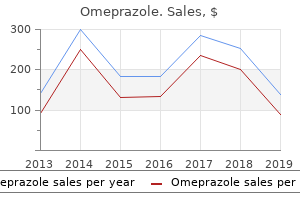
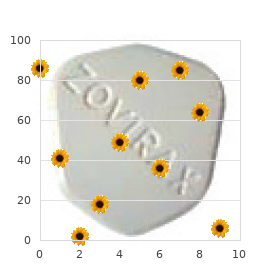
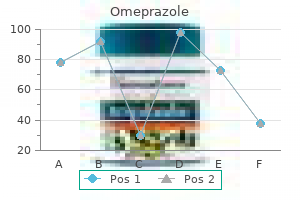
Certain conditions also frequently lead people to gastritis or ibs buy 10mg omeprazole with amex label others as deviant gastritis problems symptoms buy cheap omeprazole 20 mg on-line, including physical handicaps and violations of appearance norms diet untuk gastritis akut purchase 40 mg omeprazole with mastercard. People whose identities as deviant result from their beliefs or behavior fall into the category of achieved deviant status gastritis diet 1234 safe 40 mg omeprazole, while certain conditions may confer ascribed deviant status (Adler and Adler, 2009: 13). Deviance constitutes departures from norms that draw social disapproval such that the variations elicit, or are likely to elicit if detected, negative sanctions. They are created, maintained, and promoted, sometimes in competition against one another. Society creates norms in much the same sense that the idea of deviance itself results from social construction and negotiation (Pfuhl and Henry, 1993). Alternative Definitions One of the most common definitions, often heard in everyday conversation, identifies deviance as a variation or departure from an average. This statistical definition emphasizes behavior that differs from average experience; it cites rare or infrequent phenomena. This definition assumes that what most people do determines the correct way to act. It faces immediate difficulties, however, if it classes any minority as inherently deviant. Rather, the definition must connote some difference or departure from a standard of behavior-what "should" or "should not" be rather than "what is. Values represent longterm, desired states-such as health, justice, and social equality. This absolutist conception of deviance assumes that everyone agrees on obvious, basic rules of a society, leading to general agreement that deviance results from the violation of previously defined standards for acceptable behavior. This position takes the definition for granted, as though everyone always agrees that certain violations of rules represent abnormal acts and others do not. It presumes that everyone knows how to act according to universally held values; violations of these values constitute deviance. History and current practices in some societies today show situations characterized by almost universal acceptance of some set of guiding values, perhaps those of the Catholic church or the Koran. Among other societies, the teachings of the Buddha, the Bible, or other religious leaders or sacred documents have laid out invariable prescriptions for behavior. Western societies have often found general, universal standards in middle-class moral values or in the personal biases of some writers whose rural, traditional, and religious backgrounds have led them to view many forms of behavior related to urban life and industrial society as morally destructive (Ranulf, 1964). Still another version of the absolutist definition asserts that conceptions of what is deviant stem ultimately from preferences and interests of elite segments of society (Schwendinger and Schwendinger, 1977). The absolutist conception of deviance, however, ignores many facets of social life: the absolutist asserts that, regardless of time and social context, certain culture-free standards, such as how fully persons develop their innate potential or how closely they approach the fulfillment of the highest human values, enable one to detect deviance. The absolutist believes that he knows what behavior is, what people should be, and what constitutes full and appropriate development. The reactivist conception defines deviance as behavior or conditions labeled as deviant by others. As one reactivist puts it: "The deviant is one to whom that label has successfully been applied; deviant behavior is behavior that people so label" (Becker, 1973: 9). The reactivist definition thus identifies acts as deviant only according to social reactions to those acts, determined through labels applied by society or agents of social control. Once behavior receives the label deviant, an easy extension applies the label to the actor as well. The reactivist conception of deviance has gained strong influence, and reasons for its popularity are easily identifiable. Absolutist definition: Deviance results from a value judgment based on absolute standards. Certain actions and conditions qualify as deviant because they have always defined deviance (through tradition or custom). Reactivist definition: Deviance is whatever a social audience reacts against (or labels) as deviant. Critics of the reactivist definition acknowledge the importance of the interactions between deviants and social control agents, but they assert that those interactions do not define the term. To grasp the illogical foundation of this view, imagine a man committing burglary and escaping detection; because he evades detection, he experiences no reaction by society and thus escapes classification as a deviant.
Purchase omeprazole 10mg otc. What Are the Foods to Avoid with Gastritis.
References:
- https://www.diabeteseducator.org/docs/default-source/legacy-docs/_resources/pdf/general/Hypoglycemia_Tip_Sheet.pdf
- https://static1.squarespace.com/static/5d4d746d648a4e0001186e38/t/5d762abb2794140f0280be50/1568025280724/1-s2.0-S0264410X15011731-main.pdf
- https://www.childrensmn.org/childrensheartclinic/downloads/8/2019/08/hypoploastic-left-heart-syndrome-hlhs.pdf
- http://unmhospitalist.pbworks.com/w/file/fetch/109795702/jrv160015.pdf
- https://www.accessdata.fda.gov/drugsatfda_docs/label/2016/125544s000lbl.pdf





